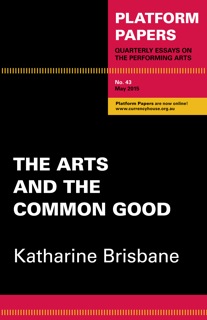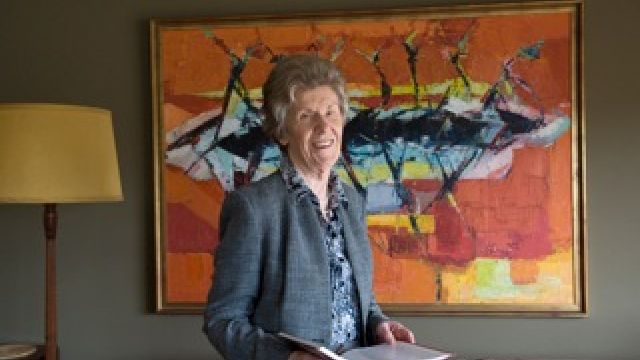Time For The Arts To Become Profitable?
Pioneering play publisher Katharine Brisbane has called for a radical re-think of the way major public arts companies operate and are funded in Australia.
The co-founder of Currency Press attacked what she described “as the intractable problem of the high-minded not-for profit structure” of the arts industry in the latest Platform Paper published by Currency House called The Arts and the Common Good.
She has urged state theatre companies to move away from annual seasons that look like they were put together “by a committee” and invest in commercial theatre such as musicals, comedy, circus and puppetry.
Katharine Brisbane traces the problem back to somc of the principles that were established when the Australia Council was founded.
“Those groups eligible for support had to demonstrate good governance by an honorary board of benevolent citizens who believed in the place of the arts in society. All profits must be recycled into new work. ”
“Good taste and a certain educational value was implied and, as things went, a repertoire of too many bankable British or American farces could earn silent reproof in the competition for grants. ”
“This denunciation of the ‘commercial’ was an entrenched characteristic of Australian theatre which probably derived from the rising middle class’s pronounced disdain of the low comedy tradition that had enlivened the countryside from the time of the gold rush; and these feelings had been encouraged in the twentieth century by the aspiring.”
 She contrasts the Australian performing arts landscape with that of Britain.
She contrasts the Australian performing arts landscape with that of Britain.
“Ian Youngs, a BBC arts reporter, in a recent survey of UK theatre, was surprised to find that despite their severe funding cuts from 2009, British theatre was thriving. Back in 1985 director Trevor Nunn had brought down scandal on the Royal Shakespeare Company by partnering with impresario Cameron Macintosh to create Les Misérables, the musical. Today the National and other UK subsidised companies are earning millions in royalties from shows they have developed and transferred: ”
“I believe that a genuinely collaborative theatre industry could plan and develop work that would have a longer life than at present is possible. And that there should be a place for every form within it: opera, drama, comedy, dance musicals, circus, children’s theatre, puppetry and so on. ”
In her paper she outlines a new model for funding.
“What if the not-for-profit status was removed from the equation? What if the Federal Government gave the Major Performing Arts Companies a handshake worth six years’ subsidy and told them to rethink their mission, restructure their company and invite investment? ”
“State theatres and opera houses could then become metropolitan theatres, available for hire; their maintenance the responsibility of their owner (the State Government). The state companies, now cashed up and relieved of maintenance pressure, could reconsider their work in an atmosphere of new possibility, healthy competition and the profit motive. ”
“Then, what if a national theatre company—or workshop—was available? To select and examine texts, develop productions, run a short try-out season, perhaps a second one, and then put the shows up for auction? ”
“Similarly, why should the subsidised sector not apply their experience also to building a music theatre industry and benefit as an investor? Music theatre generated 1.2 billion in Australia in 2013–14: investment is needed to take the leap forward.”
“The key to this is the artistic director. The sign of a healthy theatre is an artistic director with an identifiable purpose, who is seen, heard and answerable to the company and the public, and is unquestionably the cornerstone of a collegiate organisation. Otherwise to all the members it becomes a job. ”
“Today the annual seasons too often look like the work of a committee allocating the budget: a classic or two, a star or two, a hit comedy or drama and a cautious exploration of some new or near-new local works.”
“What then would the Australia Council be doing in this scenario? Investing in innovation and quality at all levels: supporting the national theatre workshop, sustaining our tradition and community, and developing high-risk individual talent.”
To purchase a copy of the paper and to join the debate visit.

